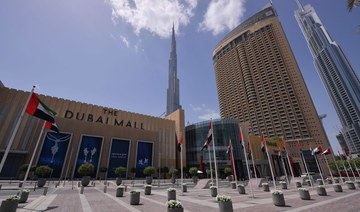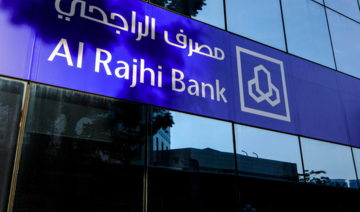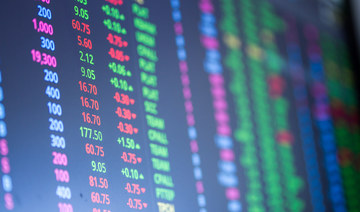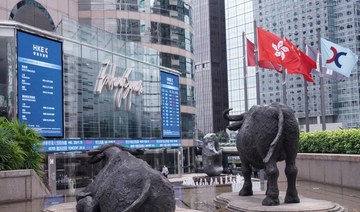DUBAI: The digital era has transformed the way people work and live, and has become more evident as the coronavirus pandemic forced everybody into an online environment to learn, work, and communicate.
In a discussion, titled the ‘future of work,’ at the second day of the Civil Society 20 Summit (C20) a panel of experts and business leaders discussed leadership in the digital age.
The C20 is one of the eight official engagement groups of the G20, which allows civil society groups to put forward a non-government and non-business voice.
Panelists of the ‘Rethinking ‘Leadership’ for a Digital Age’ session said they agreed that leadership must work hand-in-hand with technology and that “there must be a greater understanding between leadership and authority in this digital age.”
“Leadership sometimes needs authority, sometimes it does not,” Salma El-Yassir, co-founder of Womaneze, said, stressing that it is important to understand the difference between the two.
Yassir further explained that the lack of understanding created underlying fears, leading to some resisting change, including a shift to technology-driven work.
Roberto Croci, managing director at Microsoft for Startups MEA, said leadership in the digital age was not about technology, but more on people.
“It is human centered. Leaders misunderstand their role, always thinking about themselves… but it is about others,” Croci told the panel.
“A leader should come out as vulnerable, it is okay to be human. A good leader should be asking the right questions [since leaders] do not have all the answers.”
Anastasia Dedyukhina, founder of Consciously Digital, said she believed that “leadership should work hand in hand with technology.”
“A great leader is not only listening to people but also listens to suggestions. The [coronavirus] pandemic is a perfect example, if a leader listens to employees it will invigorate leadership,” Dedyukhina said.
But Dedyukhina warned that technology tools were not necessarily neutral, as some digital tools end up putting workers on a digital leash.
“Small things [such as digital communication versus personal communication] make a big difference… technology adoption has an effect on employees,” she explained.
“Technology is taking a toll on people. That is not our natural state of being. We cannot be expected to be at a screen for hours on end. Companies have to be cognizant and aware and make allowances for it,” Yassir meanwhile commented.
For Croci, some leaders are not updating the way people are being measured for performance management.
“People must be rewarded on outcomes and impact. Who cares if you work nine hours in your laptop? The small mannerisms of leaders show how to respect your employees,” Croci explained.
“We are seeing signs of digital fatigue in this new normal. Long meetings are not natural, are not healthy.”
The panelists likewise had critical views about working from home, which has become common across workforces around the globe since the coronavirus pandemic broke out.
“On the short term [working from home] can be great, but the last six months has been just about surviving,” Dedyukhina said, and mentioned a study where home-based employees were eager to return to office work, fearing their chances of promotion were jeopardized by their physical absence.
“The idea of ownership of a day initially feels great but it stops, and then becomes tiring. It may be time for leaders to reconfigure, and give workers a choice of working from home or in the office,” Yassir said.
“It could be time to do a combination of things, trust people to do their work.”
“How you are measuring your employees… you do not necessarily have to be a Google or Microsoft. It is the way you care [for your employees]. Think of your employees as human, would you do this thing to yourself? We need a human-centered leader at these times,” Microsoft’s Croci meanwhile commented.
Work from home: is it time to return to the office, C20 panel asks
https://arab.news/gwv7p
Work from home: is it time to return to the office, C20 panel asks
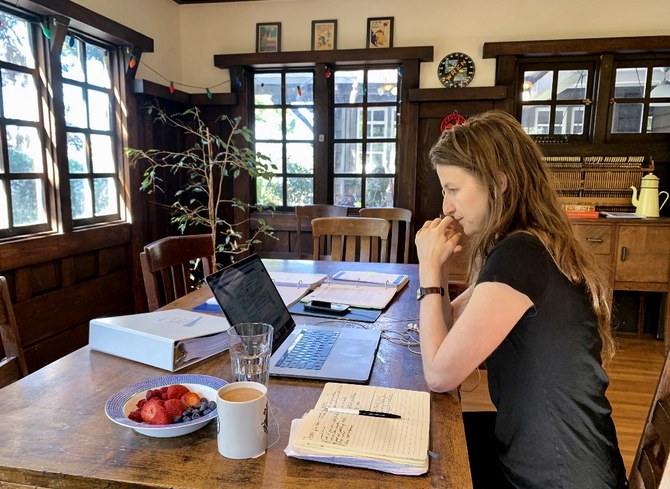
- ‘Leadership sometimes needs authority, sometimes it does not’
- ‘Technology is taking a toll on humans, that is not our natural state of being’
Saudi bourse among top 10 in the world in terms of market cap, says official
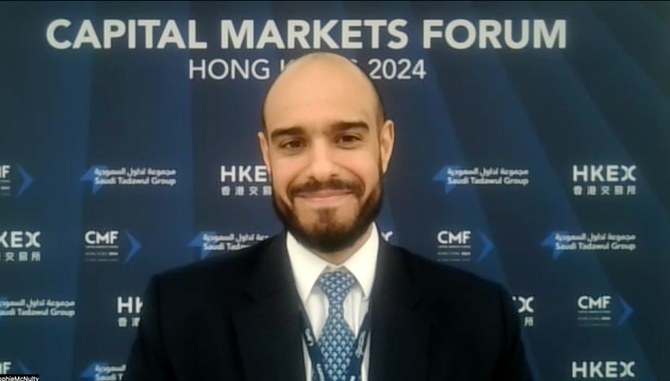
RIYADH: Saudi Tadawul Group finds itself in a “fortunate” position amid the Kingdom’s rapidly growing industries, said a senior executive.
On the sidelines of the Capital Market Forum 2024 held in Hong Kong, Nayef Al-Athel, group chief of sales and marketing officer at Tadawul Group, highlighted the company’s aim to attract global investors by sharing compelling success stories at international forums.
Speaking to Arab News, Al-Athel explained the dual nature of the group’s goals, emphasizing commercial targets focused on maximizing revenues as a listed company.
He said: “I think we are very fortunate as a capital markets group, fortunate in the sense that a lot is going on in the Kingdom. There’s unbelievable momentum in various facets of this country, and we are fortunate to be at the juncture of spillover from all these industries and all these new sectors being unraveled and unveiled in Saudi Arabia.”
Al-Athel added: “The story of the Kingdom of Saudi Arabia is very attractive, and that attraction then translates to us being very attractive as a capital market.”
Additionally, he emphasized Saudi Arabia’s geographic and time zone position, acting as a bridge between the East and West.
“If you take that from a geographical standpoint, time zone perspective, that can be straightforwardly translated into capital markets narratives of connecting East to West,” Al-Athel said.
He added: “If you look at the conference that we’re in here at CMF Hong Kong, it’s literally an attempt, which we think is very successful of us, connecting East to West.”
Commenting on his statement from the previous CMF in February held in Riyadh, Al-Athel explained how Tadawul Group is at the forefront of global capital market leaders.
“We are a top 10 stock exchange when it comes to market cap, to continue to propel ourselves high incomes to market cap rankings. That, of course, means more IPOs and more capital market transactions, more interest from investors all over the world,” he said.
Al-Athel further explained that the group’s success is building itself as an equity capital market powerhouse in Saudi Arabia, particularly through a significant number of IPOs in recent years. There’s a focus on expanding into debt capital markets and derivatives to diversify their offerings.
“We’ve worked hard on building ourselves as an equity capital market powerhouse. The number of IPOs has been staggering over the last three to four years in the Kingdom,” Al-Athel stated.
However, he mentioned that there are currently no specific announcements to make.
“We’re living in a very exciting situation as we speak, hosting 300 investors from 44 companies at the Capital Market Forum in Hong Kong,” said Al-Athel, adding that it’s the first cross-border capital market event, with participation from entities in Saudi such as the CMA and the Ministry of Investment.
He continued: “This is the flavor of where we are at the moment. This is where we are focused. Again, for sure there will be activity in the foreseeable future.”
Furthermore, Al-Athel mentioned that the group has celebrated 400 securities listed on Tadawul.
“Among those 400 listed securities, we find many success stories, and those success stories do sell themselves internationally. We have more than 22 companies traveling with us to Hong Kong, and the sole purpose of those companies, the Saudi corporates, is to tell their success stories to investors from Asia.
Al-Athel concluded his statement by highlighting the significant transformation undergone by the capital market, particularly with the achievement of 400 listed securities and a diverse investor base spanning Saudi Arabia, the region, and globally.
He noted that the rise in institutional investment and increasing numbers of IPOs signal a healthy market environment.
Al Rajhi Bank launches $1bn in perpetual bonds, says document
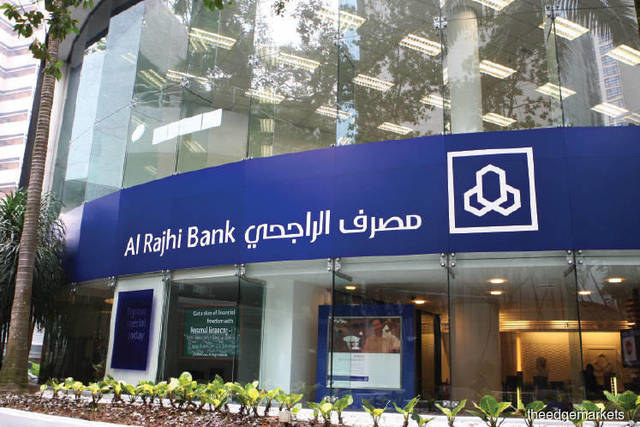
RIYADH: Al Rajhi Bank, the world’s largest Islamic bank by assets and market capitalization, has launched $1 billion in Additional Tier 1 sustainable sukuk, or Islamic bonds, a document from one of the banks arranging the deal revealed on Thursday.
The final yield for the debt transaction was set at 6.375 percent, tighter than the initial guidance of around 6.875 percent released in a document earlier in the day. The notes are perpetual in nature and can first be redeemed in May 2029.
The deal received more than $3.5 billion in orders and allocation is expected to happen later in the day, the document showed.
AT1 bonds, the riskiest debt instruments banks can issue, are designed to be perpetual in nature, but lenders can call them after a specified period.
Closing Bell: Saudi main index slips to close at 12,284
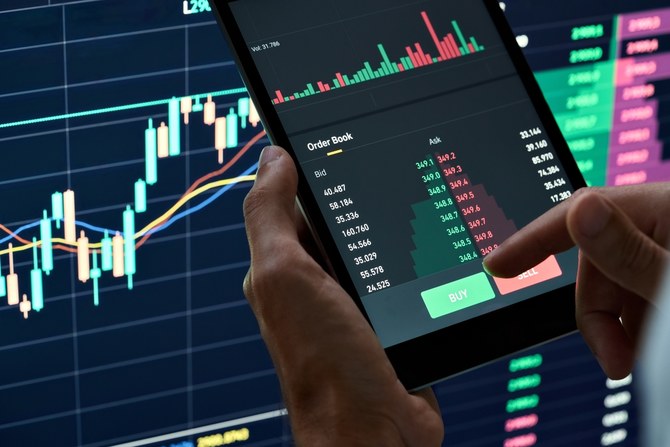
RIYADH: Saudi Arabia’s Tadawul All Share Index slipped on Thursday, losing 175.70 points, or 1.41 percent, to close at 12,284.41.
The total trading turnover of the benchmark index was SR7.31 billion ($1.94 billion) as 41 of the stocks advanced, while 184 retreated.
On the other hand, the Kingdom’s parallel market Nomu rose 199.85 points, or 0.74 percent, to close at 27,086.44. This came as 20 of the stocks advanced, while as many as 45 retreated.
Meanwhile, the MSCI Tadawul Index slipped 19.92 points, or 1.28 percent, to close at 1,537.54.
The best-performing stock of the day was Al-Babtain Power and Telecommunication Co. The company’s share price surged 7.77 percent to SR45.75.
Other top performers include Retal Urban Development Co. as well as Tanmiah Food Co.
The worst performer was Gulf Union Alahlia Cooperative Insurance Co. whose share price dropped by 10 percent to SR22.68.
Other worst performers were Allied Cooperative Insurance Group as well as Al-Etihad Cooperative Insurance Co.
On the announcements front, Jamjoom Pharmaceuticals Factory Co. has announced its interim financial results for the period ending on March 31.
According to a Tadawul statement, the company’s net profit hit SR102.9 million in the first quarter of 2024, reflecting a 22 percent surge when compared to the similar quarter last year.
The increase was mainly driven by an increase in sales, which were slightly offset by the devaluation impact from the Egyptian pound.
Moreover, the National Gas and Industrialization Co. also announced its interim financial results for the first three months of 2024.
A bourse filing revealed that the firm’s net profit reached SR78.6 million by the period ending on March 31, up 7.6 percent in comparison to the corresponding period in 2023.
The increase in net profits is primarily attributed to a surge in gross profit by SR9 million due to increased revenues, alongside a rise in investment and finance income by SR2 million. Additionally, there was an increase in other income by SR1 million, coupled with a decrease in zakat expense by SR2 million.
Furthermore, Modern Mills for Food Products Co. also announced its interim financial results for the first quarter of the year.
According to a Tadawul statement, the company’s net profits climbed 1.3 percent to reach SR64.9 billion in the first three months of 2024 compared to the same period a year earlier.
This rise is mainly owed to revenue growth as well as improving efficiency.
Additionally, Saudi Industrial Investment Group also announced its interim financial results for the period ending on March 31.
A bourse filing revealed that the firm’s net profit stood at SR28 million at the end of the first quarter of 2024, compared to a net loss of SR242 million recorded in the same quarter a year ago.
The increase in net profit is attributed to SIIG’s higher share of profit from joint ventures, coupled with a reduction in zakat expenses.
Saudi PIF’s AviLease delivers first tranche of six aircraft to Indian airline
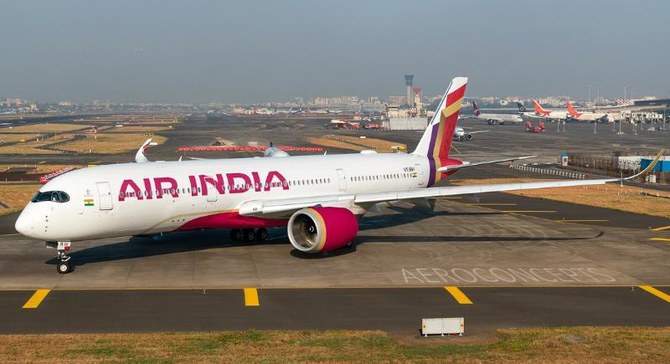
RIYADH: AviLease, owned by the Public Investment Fund, has delivered two aircraft to an Indian airline, marking the initial delivery of six planes scheduled for 2024.
The global aircraft lessor announced the delivery of Boeing 737-8 jets to Air India Express Ltd. with plans to lease four additional aircraft within the current year.
An AviLease statement said these type of planes are one of the most fuel-efficient, sustainable, and technologically advanced narrow-body aircraft on the market.
It added that these deliveries set the tempo for AviLease, as it aims to build a diverse portfolio of the most advanced, latest-generation narrow- and wide-body aircraft available.
AviLease CEO Edward O'Byrne said the company is delighted to deliver the first two of six new Boeing 737-8 aircraft to its Indian client.
“Our partnership with Air India continues to strengthen under Tata Group ownership and we are proud to support their fleet modernization program. We wish the Air India Express team continued success with their commitment to provide affordable and reliable air travel to its customers.” O'Byrne said.
The full-service commercial aircraft lessor highlighted its role in fulfilling PIF’s mandate to unlock the potential of priority sectors, supporting the diversification of Saudi Arabia’s economy and contributing to non-oil gross domestic product.
AviLease, which was established in 2022, noted that the two-aircraft delivery reaffirms its rapid global expansion.
With a portfolio value of $6 billion, the company is dedicated to providing tailored fleet solutions to its airline partners.
Robust IPO pipeline and market initiatives propel Saudi Exchange’s global appeal: CEO
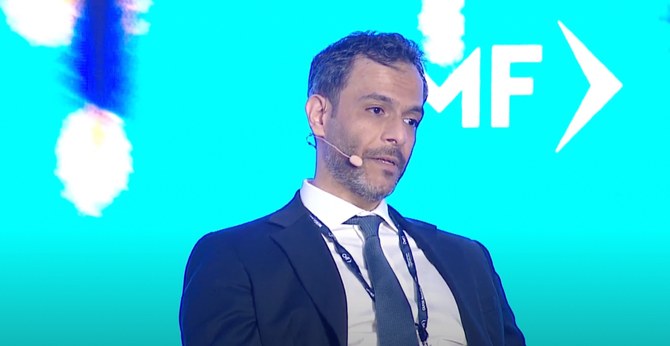
RIYADH: An array of robust and diverse initial public offerings are poised for the Saudi Exchange thanks to new initiatives aimed at attracting international investors, the bourse’s CEO has revealed.
Addressing a panel discussion themed “Expanding Frontiers: Uncovering Investment Potential in Saudi Arabia and China” at the Capital Market Forum — CONNECT Hong Kong, Mohammed Al-Rumaih expressed confidence in the future trajectory of the Saudi Exchange.
"We can see a very healthy pipeline of IPOs, not just small or large ones, but across different sectors and cycles, tracing their journey from being private to going public," Al-Rumaih said.
The CEO attributed this to the Saudi Exchange’s new measures aimed at attracting international investors.
“We’ve been doing a lot of work in the past few years, major projects every year, to accommodate the needs of international investors and the asset managers,” he explained.
These include the introduction of Market Making and the debut of Single Stock Options.
In 2022, it launched a market-making framework for its stock and derivatives markets, aimed at enhancing liquidity and improving price determination efficiency.
Al-Rumaih also highlighted the upcoming launch of the second phase of the Saudi Exchange’s post-trade development program, expected in the third quarter of 2024.
Moreover, the CEO elaborated on Tadawul’s close collaboration with the Kingdom’s Capital Market Authority.
“So, when it comes to technology, we have state-of-the-art infrastructure similar to global exchanges, but it’s not only about technology; there’s a major element which is the regulations. We’ve been working closely with regulators, particularly the CMA because they are leading the development of the capital market,” he stressed.
In addition, Al-Rumaih also addressed how the Saudi Exchange views Hong Kong as an ally.
“We believe Hong Kong is a great partner for us. They’ve been doing a great job in the past few years, and I think they’ve established themselves as a destination for international investors looking to invest in Asia,” the CEO affirmed.
“So, for us, as a country that is gearing up to become thriving economy and having the biggest stock market, or the biggest skeletal market, within that time zone, I think Hong Kong is a great partner to connect the Middle East with the East,” he underlined.
Also speaking at the same panel, Loai Bafaqeeh, head of securities at SNB Capital, explained what the Kingdom is doing to encourage international investors.
“With the market evolving and focusing on listing companies and bringing more and more companies to the market, I think what’s happening in Saudi in terms of encouraging international investors basically we are addressing some of the key fundamentals that international investors are looking for,” Bafaqeeh said.
He added: “One thing, for instance, is the introduction of Market Making. Today, if you want to get an ETF or another product, or if you want to ensure good liquidity in the market, your first question should be: ‘Do you have a Market Making?’”
During the same panel discussion, Ding Chen, CEO of CSOP Asset Management Limited, talked about the emergence of the Kingdom as an investment prospect.
“Saudi Arabia, the Kingdom, has already done a great job promoting itself and also bringing itself in the spotlight globally by providing quite a lot of conference and events; nowadays, a lot of people travel to Riyadh,” Chen underscored.
“But we constantly do seminars and also do client educations with clients,” the CEO added.
She went on to note that in order to provide Saudi Arabia with more opportunities and make it more appealing to regional investors, conducting massive education sessions for clients is crucial.
“CSOP probably will do around 2,000 seminars annually, and we hope that through doing this continually client education, we can make more people know more about Saudi opportunities,” Chen concluded.
Saudi Arabia’s Capital Market Forum aims to bolster connections with China’s capital markets by extending its reach beyond borders to host the event in Hong Kong.
In 2023, the Saudi Exchange saw a significant influx of IPOs and listings, introducing various industries to the Main Market and the Nomu Parallel Market.
On the Main Market, nine IPOs raised SR11.6 billion ($3 billion), with an additional SR5.04 billion raised across nine further offerings. Meanwhile, the Nomu Parallel Market saw 27 IPO listings raising SR1.2 billion, along with six companies completing direct listings.
In April, the Saudi Exchange welcomed its 400th listing across all securities, underlining the growing prominence of the bourse in the capital market.
As of March 27, the exchange had 216 securities listed on the Tadawul All Share Index, with the parallel market Nomu featuring 83 listings.




